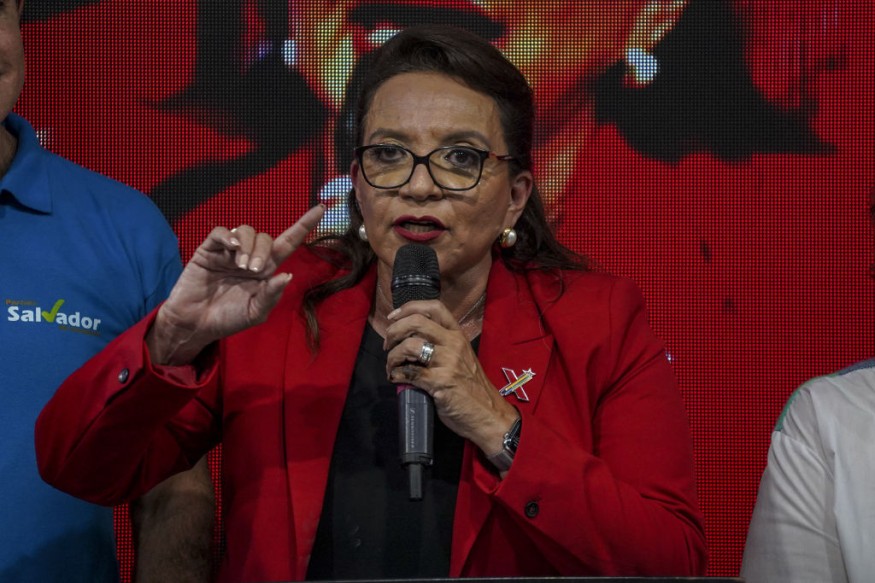Honduras' Xiomara Castro Ends Emergency Contraception Ban

Honduras President Xiomara Castro has ended a 13-year ban on an emergency contraception, signing the executive order for International Women's Day on March 8.
Castro tweeted that March 8 "commemorates women's historic struggle," adding that she signed the executive order for the universal use of the morning-after pill.
According to BBC News, the Honduran president noted that the World Health Organization (WHO) determined it is part of women's reproductive rights and not abortive.
The health ministry of Honduras approved the use of the pill exclusively for rape victims after a campaign from feminist groups.
Honduran Health Secretary Jose Manuel Matheu said they were not promoting the morning-after pill as contraception, adding that doing so would lead to "sexual debauchery."
Reproductive rights activist Sandy Artega dubbed Castro's move as a welcomed change but noted that more work should be done on the matter.
Honduras' Emergency Contraception Ban
According to NPR, Honduras has an absolute ban on the sale or use of emergency contraception, which is commonly known as morning-after or "Plan B" pills.
It was first banned in Honduras in 2009 and was ultimately affirmed by its Supreme Court in 2012.
When Jose Manuel Matheu slightly pulled back on the ban, critics argued that it would not go far enough despite making the medicine legal in cases of rape.
Groups in Honduras have called for open access to emergency contraception, which included Strategy Group for PAE or GEPAE. The group has been working with the U.S.-based Women's Equality Center.
GEPAE also used Bad Bunny's tour in Honduras to legalize emergency contraception, referring to the artist's hit "Me Porto Bonito," which mentions the Plan B pill.
The Center for Women's Rights welcomed the news, noting that women's rights "must not remain the bargaining chip of governments." Violence against women and girls is rampant in Honduras, with abortion being illegal in all circumstances.
Women and girls who have experienced sexual abuse may be forced to continue an unwanted pregnancy against their will, which continues the cycle of violence.
Honduras Women's Rights
In United Nations' 2018 report, experts noted that Honduras has one of the highest rates of teen pregnancy in the Latin American region and has an absolute ban on abortion despite the fact.
Experts said that comprehensive sexual education in the region was also lacking, adding that more efforts should be undertaken to include programs focusing on gender equality and violence against women.
Women human rights defenders in Honduras are regularly criminalized, intimidated, and even killed. During her inauguration, Xiomara Castro vowed to Honduran women that she will not fail them.
"I will defend your rights, all your rights, count on me," she noted, as The Guardian reported in December.
Castro is the first female president of Honduras, with her election victory ending years of conservative rule. Some of the activists in Honduras believe that Castro will "possibly fulfill some of the things" she promised.
READ MORE : Honduras Travel: Safety Advisories and Tourist Attractions You Should See During Your Visit in Honduras
This article is owned by Latin Post.
Written by: Mary Webber
WATCH: Xiomara Castro Sworn in as Honduras' First Female President - From Guardian News
Subscribe to Latin Post!
Sign up for our free newsletter for the Latest coverage!
© 2026 Latin Post. All rights reserved. Do not reproduce without permission.














